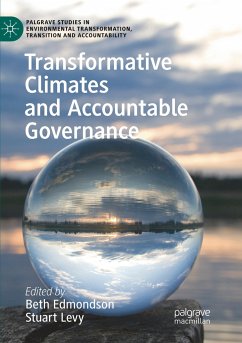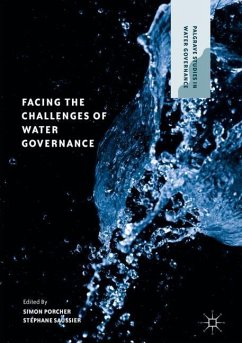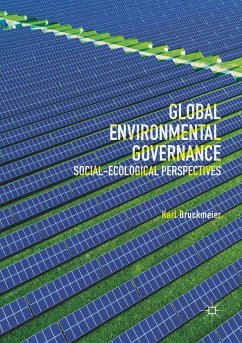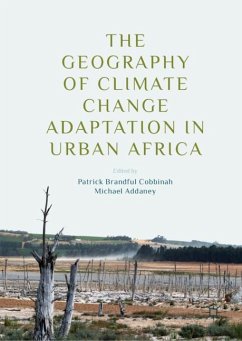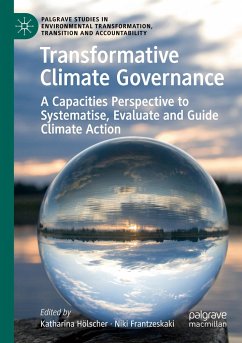
Transformative Climates and Accountable Governance

PAYBACK Punkte
38 °P sammeln!
This book explores the real-world consequences changing ideas and strategies have on effective climate governance. Its main focus is on why accountability matters - both for transformations and transitions in international climate change governance and how international support for environmentally responsible actions, and extending shared accountabilities, might strengthen climate governance globally. A main point of discussion is if and how better understanding of accountabilities and transformations in ecosystems dynamics, the capacities of organisms to adapt, migrate or otherwise respond to...
This book explores the real-world consequences changing ideas and strategies have on effective climate governance. Its main focus is on why accountability matters - both for transformations and transitions in international climate change governance and how international support for environmentally responsible actions, and extending shared accountabilities, might strengthen climate governance globally. A main point of discussion is if and how better understanding of accountabilities and transformations in ecosystems dynamics, the capacities of organisms to adapt, migrate or otherwise respond to environmental or climatic changes, can improve climate governance mechanisms.
Bringing together a diverse set of considerations from various fields of study, chapters examine responses to environmental transformations that occur during periods of climatic crisis, such as species depletion, industrialisation, de-industrialisation or urbanisation. Throughout, this book aims to further readers understanding of if or how accountable climate governance can reduce the risks of global political disorder and widespread conflict in the 21st century, arising from environmental transformations of depleted forests, re-routed waterways, coastlines impacted by sea level rises, changed rainfall patterns and industrial practices.
Bringing together a diverse set of considerations from various fields of study, chapters examine responses to environmental transformations that occur during periods of climatic crisis, such as species depletion, industrialisation, de-industrialisation or urbanisation. Throughout, this book aims to further readers understanding of if or how accountable climate governance can reduce the risks of global political disorder and widespread conflict in the 21st century, arising from environmental transformations of depleted forests, re-routed waterways, coastlines impacted by sea level rises, changed rainfall patterns and industrial practices.



